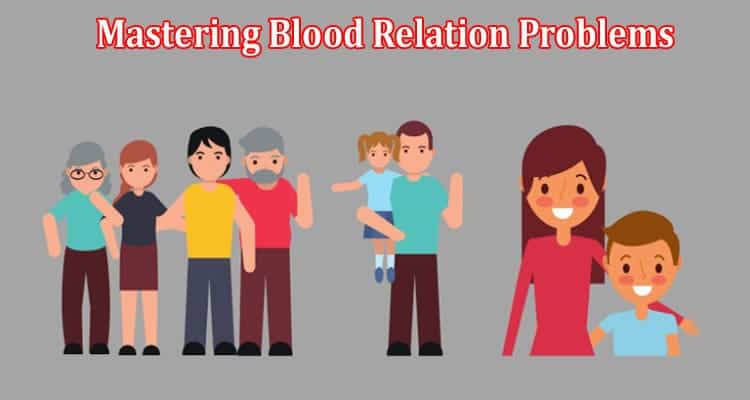Mastering Blood Relation Problems in Competitive Exams
Mastering Blood Relation Problems: Navigating through the intricate labyrinth of blood relation problems can often feel like deciphering a cryptic code. However, with the right approach and strategies, you can transform confusion into clarity and tackle these questions with confidence. Whether you’re preparing for bank exams or any other competitive tests, mastering blood relation questions is essential for success. This article focuses on effective techniques and methods to help you conquer these challenging queries.
Understanding the Basics
Before diving into the depths of blood relation questions, it’s important to grasp the fundamental concepts. These problems typically revolve around relationships between family members, requiring you to decipher connections based on given information. These questions often involve terms such as father, mother, brother, sister, aunt, uncle, and cousin, among others.
Establishing a Framework
One of the most effective strategies for tackling blood relation problems is to establish a clear framework. Begin by carefully analysing the provided information and creating a family tree or diagram to visualise the relationships. This visual aid can significantly simplify complex scenarios and help you identify patterns more easily.
Identifying Key Relationships
In many problems, certain relationships serve as anchors from which you can deduce additional connections. For example, identifying parent-child relationships can provide valuable clues for establishing other familial ties. Focus on identifying these key relationships early on to streamline the problem-solving process.
Utilising Logical Deduction
Logic is your greatest ally when it comes to unravelling the intricacies of blood relation problems. Employ deductive reasoning to eliminate improbable scenarios and narrow down the possibilities. Look for clues within the given information and use them to make informed deductions about the relationships between various family members.
Applying Inference Techniques
In some cases, blood relation problems may require you to make inferences based on indirect or implied information. Develop your ability to read between the lines and draw conclusions from subtle clues provided in the question. Pay attention to contextual details and use them to infer additional relationships or familial dynamics.
Practising with Variations
Like any other skill, mastering blood relation problems requires practice and exposure to different variations of problems. Familiarise yourself with various types of questions, including those involving complex family structures, multiple generations, or non-traditional relationships. The more diverse your practice, the better equipped you’ll be to tackle any challenge thrown your way.
Seeking Guidance
If you find yourself struggling with certain aspects of problems, don’t hesitate to seek guidance. Consult reputable study materials, online resources, or experienced mentors who can provide valuable insights and clarification. Engaging with peers or joining study groups can also offer opportunities for collaborative learning and skill enhancement.
Staying Calm and Focused
During exams or timed assessments, maintaining a calm and focused mindset is essential for tackling blood relation problems effectively. Avoid succumbing to panic or becoming overwhelmed by the complexity of the problems. Instead, approach each question methodically, taking the time to analyse the information and apply the strategies you’ve learned.
Using Online Resources
Online learning courses and PDS offer a structured and flexible approach to mastering blood relation problems, which are pivotal in competitive exams. These platforms provide interactive tools, expert guidance, and community support to help learners understand complex family relationships step-by-step. By regularly engaging with course material, using visual aids like family tree diagrams, and practising through quizzes, learners can build their logical reasoning skills effectively. Additionally, these courses allow for personalised learning schedules that fit into any busy routine, making it easier for candidates to consistently hone their problem-solving skills and boost their exam performance.
Mastering blood relation questions is a valuable skill that can significantly enhance your performance in bank exams and other competitive tests. By understanding the basics, establishing a framework, employing logical deduction, and practising diligently, you can navigate through these challenges with confidence and precision. Remember, with the right approach and perseverance, even the most perplexing puzzles can be solved.




